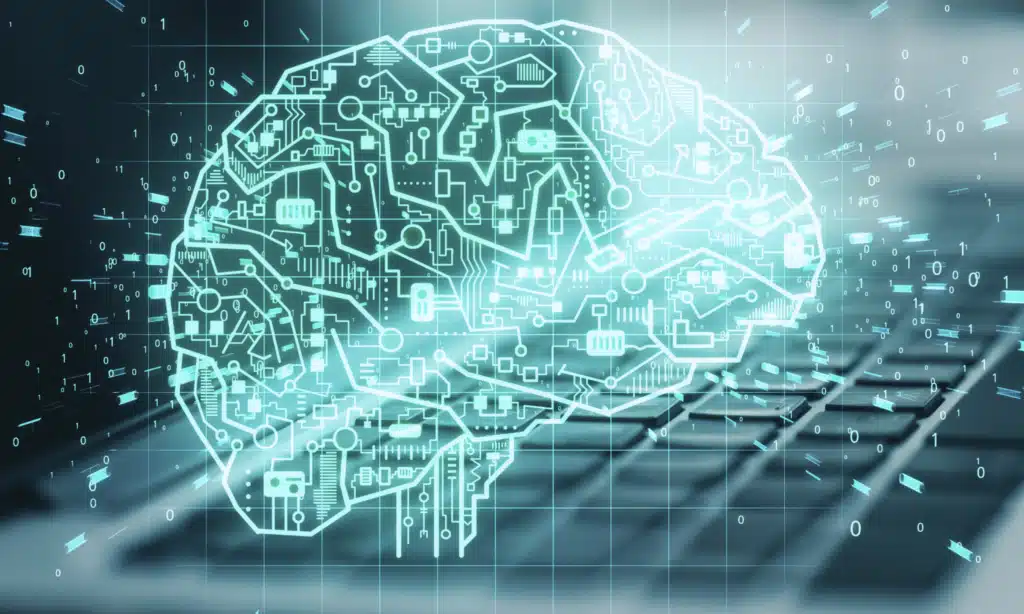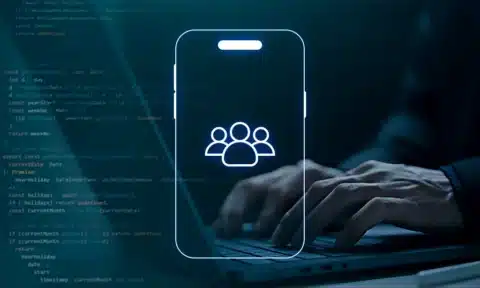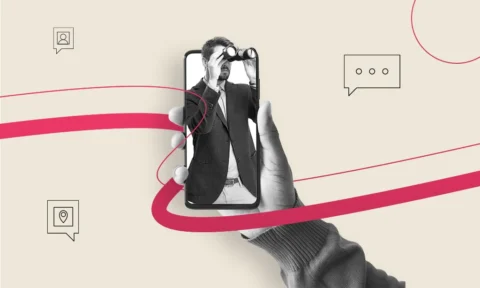You’ve probably heard of speech-to-text. But what about thought-to-text?
With the help of new AI technology advances, mind-reading tech that can turn your thoughts into words is officially here.
Almost equally creepy and intriguing, this new tech has sparked an avalanche of privacy concerns. In an age of instant data-sharing, how will we protect our mental privacy?
But it’s not all bad. Although not perfect, mind-reading technology already has the potential to revolutionize a variety of industries and improve the lives of people who are speech impaired.
Keep reading as we take a closer look at the new mind-reading technology, its potential, and its implications.
Mind-Reading Technology Is Here Folks
No, the title of this blog isn’t clickbait. Mind-reading tech has arrived.
Not so long ago, mind-reading technology was just the stuff of sci-fi movies. Fast forward to 2023, and it’s a reality.
A recent study published in Nature has futurists at the edge of their seats. The study reveals that scientists from the University of Texas have developed a way to decode unspoken thoughts into words.
This isn’t a totally new capability. Researchers have already shown they can decode unspoken thoughts via electrode implants in the brain. An algorithm then translated the registered brain activity into text.
While this definitely qualified as mind-reading, the approach is highly invasive, often requiring surgery. It is also very costly, and only worthwhile for a small subset of speech-impaired patients.
The latest developments at the University of Texas have now brought us the first non-invasive brain-computer interface (BCI). In other words, the technology can pick up the general gist of what we’re thinking, without the need for implanted electrodes.
How is this possible?
How New AI Technology Is Facilitating Mind-Reading Tech
This latest development in mind-reading is thanks to a marriage of new AI technology and fMRI scans. fMRIs track the flow of blood to different areas of the brain. The scientists then paired this data with an AI language learning model (similar to ChatGTP).
By blending the two types of technology, researchers were able to pick up roughly what study participants were thinking, with a surprising degree of accuracy.
During the study, three participants listened to 16 hours of podcasts. During this time, the researchers trained the language learning model to become a personalized decoder for each participant.
The participants were also asked to imagine telling a story while the fMRI machine monitored their brain activity. Afterward, they repeated the story aloud so the researchers could compare the first version for accuracy.
It’s Not Perfect, Yet
Although the results of the study were impressive, they weren’t perfect.
The language learning model was able to pick up roughly what participants were thinking, but it wasn’t always an exact match.
The brain is a complex organ, full of unique connections. Current AI language models can do a pretty good job of predicting word sequences, but there are still a lot of limitations.
Even so, the researchers still ended up with a breakthrough on their hands. One that goes a lot further beyond what previous mind-reading tech could do.
Mind Reading Technology Concerns
The publication of the study in Nature has sparked a flurry of concerns. People are raising their voices around potential privacy issues and violation of human rights.
Currently, the prime aim of mind-reading technology is to assist those with speech impairments and paralysis. But what about its other potential applications?
Self-Incrimination
One of the first applications that comes to mind is law enforcement. Under the Fifth Amendment, US citizens are protected from being compelled to self-incriminate.
But will this be enough to protect them from being forced to undergo potentially incriminating mind-reading technology in the future? What about other countries where the legal code doesn’t offer this right to not self-incriminate?
Accuracy
Another potential concern is accuracy. If mind-reading technology were used to decipher incriminating thoughts, what guarantee is there of 100% accuracy?
This also applies to medical situations. If the decoding contains errors, what repercussions could this have for paralysis sufferers?
Government and Corporate Abuse
People are also raising concerns about the dangers of governments abusing mind-reading technology to exert control. Privacy is another area of concern.
What will stop corporates and advertisers from leveraging brain data? Subliminal advertising already toes a fine moral line. If companies had access to consumers’ brain data, this could allow for the creation of unfairly compelling advertising messages.
Right now, it’s unlikely that the mind-reading model developed at the University of Texas is going to be used for nefarious purposes. For one, fMRI machines are incredibly expensive and bulky.
Second, researchers were only able to achieve success with the cooperation of participants. If the volunteers started counting, the AI learning model couldn’t pick up their thoughts.
Results were also dependent on training the AI. It had to learn the language patterns of each participant.
The Potential Benefits of Mind-Reading Technology
The original purpose of brain-computer interfaces (BCI) was to assist people with severe disabilities to communicate. Mind-reading technology can dramatically improve the quality of life for locked-in sufferers of things like ALS.
Mind-reading technology could also be a huge productivity booster. Imagine being able to communicate with your computer or device by thought alone. This is a big area of focus for things like Elon Musk’s NeuraLink.
Have you ever wished you could, for instance, download your thoughts and send them to an app-building company? Instead of having to verbally explain what you need?
This is just one example. Mind-reading BCI tech could transform (and speed up) almost every interaction we have with computers, devices, and the internet. Elon Musk believes BCIs will give humanity a chance to keep up with new AI technology and the rapid advancements it’s triggering.
Do You Have an App Idea?
Thanks to new AI technology, researchers have now been able to develop a non-invasive mind-reading model. The rapid advancements in mind-reading technology have been sparking various concerns, but they’re also paving the way for exciting opportunities.
Speaking of opportunities, do you have an idea for an app that you’d like to bring to life? It might not yet be possible to download your thoughts, but if you work with a good app-building company like us, it’s not necessary.
Here at Nizek, we specialize in creating apps that are carefully tailored to the end user’s needs. We don’t just write elegant code and create slick visuals, we pay minute attention to our clients’ goals.
Starting with a collaborative research and discovery process, we work to establish a shared vision so that you receive the perfect product.
Want to discuss your project? Contact us today.



